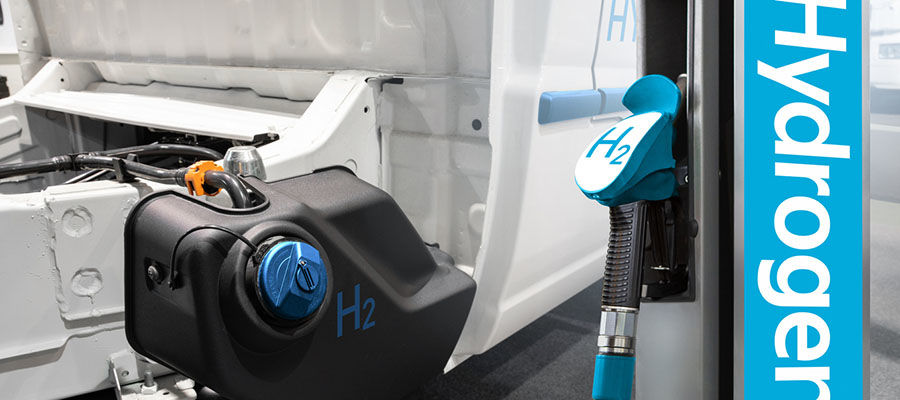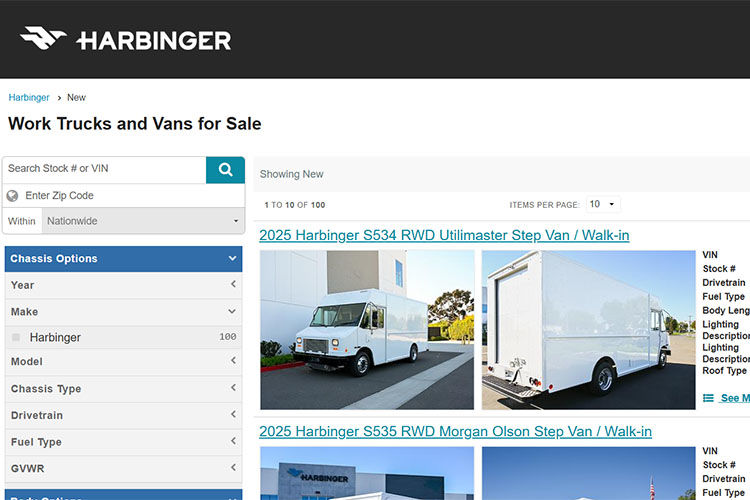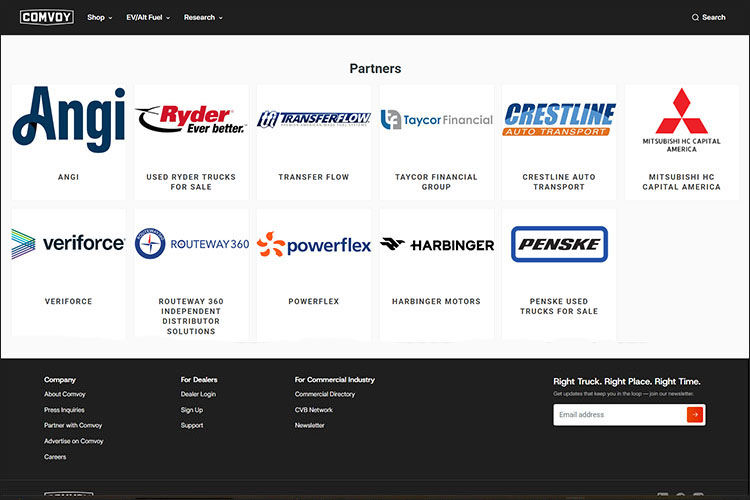Unpacking DOE's $7 Billion Push Toward Hydrogen Commercial Vehicles


Unpacking DOE's $7 Billion Push Toward Hydrogen Commercial Vehicles
The push for net-zero emissions is growing in the commercial vehicle industry, predominantly leading to a shift towards electric vehicles (EVs) for carbon footprint reduction. However, although EVs are a great match for some use cases, they have limitations for others, which leads to a focus on other fossil fuel alternatives that exist.
Apparently, that fact has not been totally lost on the Biden-Harris administration in their goal to lead America to "remove all emissions from the transportation sector by 2050."
Although much of the net-zero discussion has revolved around fleet electrification, the DOE's October announcement of a $7 billion investment to launch seven Regional Clean Hydrogen Hubs (H2Hubs) across the nation is having a big impact on that conversation.
SHOP ADVANCED FUEL VEHICLES NOW
“Unlocking the full potential of hydrogen—a versatile fuel that can be made from almost any energy resource in virtually every part of the country—is crucial to achieving President Biden’s goal of American industry powered by American clean energy, ensuring less volatility and more affordable energy options for American families and businesses,” said U.S. Secretary of Energy Jennifer M. Granholm. “With this historic investment, the Biden-Harris Administration is laying the foundation for a new, American-led industry that will propel the global clean energy transition while creating high-quality jobs and delivering healthier communities in every pocket of the nation.”
Although the DOE’s official announcement is only months old, we are already seeing the market respond with positive steps toward making commercial hydrogen applications available to businesses.
What is a Hydrogen Hub?
A hydrogen hub is a regional center that champions hydrogen production, storage, and distribution. These hubs are collaborative efforts and partnerships of organizations, companies, government offices and agencies, non-profits, and other regional entities. The idea is to create a network of hubs that can develop a reliable supply of hydrogen and an efficient infrastructure to deliver it to the public.
The Midwest Alliance for Clean Hydrogen (MachH2) is one of the projects selected by the U.S. Department of Energy to operate as a regional clean hydrogen hub.
“This is a historic day for MachH2 and the entire Midwest,” said Dr. Dorothy Davidson, CEO of MachH2. “Our hub and the region bring an unparalleled supply of clean energy, significant regional hydrogen demand, heavy industry, and an ideal location at the crossroads of America—all of which was recognized by the DOE’s selection of MachH2. Our hub will scale the production and delivery of abundant, reliable, and increasingly affordable clean hydrogen to support our national climate goals in the coming decade, all while creating jobs and lifting up underrepresented communities that have been overburdened by pollution.”
The DOE identified national regions as having high potential for hydrogen production, and has to date selected seven hub projects that show promise in meeting this goal.
Projects selected include:
- Pacific Northwest Hydrogen Hub (PNWH2 Hub)
- Heartland Hydrogen Hub (HH2H)
This funding marks a new era for hydrogen technology development, infusing it with the momentum and lifeblood required to orchestrate essential improvements and innovations. With this extra financial muscle, we can expect significant technological and infrastructure advancements to make hydrogen a viable alternative to fossil fuels.
“By choosing Appalachia, the new hydrogen hub will be where there is an abundance of natural resources, including low-cost natural gas production and storage, existing pipelines and transportation networks, and vast end-use markets as well proximity to end-use markets in the Midwest and Northeast,” said Ohio Governor Mike DeWine. “Creating a hydrogen hub is also an important component of a diversified and reliable energy portfolio."
Implications for Commercial Vehicle Stakeholders
Fast-tracking the development of hydrogen fuel and infrastructure should instill in industry stakeholders a new confidence in the future of hydrogen for commercial applications.
For manufacturers, this heralds an opportunity to serve sectors unsuitable for electrification. For example, hydrogen fuel cell technology is ideal for long-haul trucking and other heavy-duty applications where range and payload are critical considerations. Such a large investment by the government should encourage manufacturers to diversify their product portfolios and invest in capturing new markets.
Fleet operators can expect to see a wider range of vehicles available for purchase or lease, giving them more options when it comes time to replace aging vehicles. Simultaneously, this funding will help to accelerate the development of hydrogen refueling infrastructure, making it easier for businesses to adopt hydrogen-powered vehicles in their fleets.
As more fleets are willing to adopt hydrogen-powered vehicles, commercial vehicle dealers will have a more diverse range of solutions for their customers' needs. This could result in an opportunity to differentiate themselves as solution partners rather than just a sales outlet.
Benefits to the Environment
The impacts here are twofold, benefiting both environmental health and green business objectives. Transitioning to hydrogen as an energy source greatly reduces carbon emissions, remarkably inching closer to the ambitious goal of a net-zero carbon emission future with more tools to mitigate volatility in the energy sector.
Note that Hydrogen technology as a transportation solution is multifaceted in that it can be used as an internal combustion (ICE) fuel, such as the latest from Cummins, which “is leading the charge in hydrogen internal combustion engine technology,” or as a charging source in fuel cell electric vehicles (FCEV), such as those produced by the GM / Honda collaboration FCSM LLC, Nikola Corp, and those jointly designed by Toyota and Kenworth.
The Road Ahead
We've witnessed the results of a federal push towards electrification; more electric commercial vehicles are available than ever before, and more are on the way. Well-established OEMs are already offering BEV options for light, medium, and heavy-duty configurations, and commercial EV startups are also gaining traction.
With that in mind, the staggering $7 billion earmarked by the DOE to "accelerate the commercial-scale deployment of low-cost clean hydrogen" will significantly accelerate the prospects for hydrogen-powered commercial vehicles, with developments anticipated to spin off within the innovation, manufacturing, and market acceptance domains.
This move signifies a monumental leap in the trajectory of hydrogen fuel cell technology. Stay tuned to NuPropel for more updates on this emerging hydrogen revolution.
SHOP ADVANCED FUEL VEHICLES NOW
Published on: February 20, 2024 Driving Business Growth Through Financial Flexibility: How You Buy Your Truck Matters
Driving Business Growth Through Financial Flexibility: How You Buy Your Truck Matters The Comvoy 2026 Event Calendar: We’ll See You There
The Comvoy 2026 Event Calendar: We’ll See You There Wheel Safety Is Your Business: How to Protect Your Fleet and Your Bottom Line
Wheel Safety Is Your Business: How to Protect Your Fleet and Your Bottom Line Harbinger Electric Step Vans and Cab Chassis Vehicles Now Available on Comvoy
Harbinger Electric Step Vans and Cab Chassis Vehicles Now Available on Comvoy Comvoy’s Partner Network: Your Shortcut to Smarter Fleet Solutions
Comvoy’s Partner Network: Your Shortcut to Smarter Fleet Solutions







